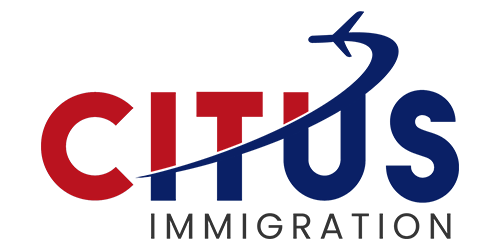5 Shocking Reasons Your Canada Study Permit Could Be Rejected, How to Avoid them?
Applying for a study permit to pursue your education in Canada is an exciting step, but it can also be challenging. Study permit refusals are becoming increasingly common, and understanding the potential pitfalls is key to success. As a licensed RCIC (Regulated Canadian Immigration Consultant), I’ve outlined the top five reasons for study permit rejections and provided actionable advice to help you avoid them.
1. Insufficient Proof of Funds
One of the main reasons study permits are denied is a lack of sufficient financial documentation. Immigration, Refugees, and Citizenship Canada (IRCC) mandates that international students must prove they can cover tuition fees, living expenses, and travel costs.
2024 Minimum Fund Requirements
For a single applicant outside Quebec, the required funds are $20,635 CAD annually (exclusive of tuition and travel). This amount adjusts based on family size or if the applicant plans to study in Quebec.
How to Avoid This Issue:
- Provide Clear Documentation: Include bank statements, Guaranteed Investment Certificates (GICs), or proof of a student loan from a recognized financial institution.
- Demonstrate Long-Term Financial Stability: Supplement your application with pay slips, employment letters, or a detailed bank account history.
- Account for Currency Fluctuations: If funds are in a foreign currency, include a letter from your bank confirming the current exchange rate and fund availability.
2. Lack of Ties to Your Home Country
To obtain a study permit, you must prove to the IRCC officer that you’ll return to your home country after completing your studies. This demonstrates that you respect the temporary nature of your permit.
Factors Considered by IRCC:
- Employment status and family ties in your home country.
- Property ownership or other significant connections.
- Economic and political stability in your home country.
How to Strengthen Your Case:
- Highlight Employment Ties: Provide job offer letters, employment contracts, or a leave approval letter from your current employer.
- Show Family or Social Connections: Include evidence of family responsibilities or ties, such as dependents or property ownership.
- Explain Future Plans: Clearly articulate how studying in Canada will help you achieve career goals back in your home country.
3. Weak or Missing Letter of Explanation
A compelling letter of explanation is a crucial part of your study permit application. This document helps the IRCC officer understand your motivations for choosing Canada and your selected program of study.
Tips for Writing a Strong Letter:
- Be Clear and Concise: Outline why you chose Canada, the specific institution, and how the program aligns with your career aspirations.
- Connect Your Background: Link your previous academic or professional experience with your future goals.
- Include Personal Context: Briefly mention personal motivations, such as family values or inherited interests, that influence your decision.
4. Incomplete Application or Missing Documents
Incomplete applications are immediately returned without processing. Missing documentation or unpaid fees are common reasons for rejection.
Essential Documents:
- Proof of Acceptance: A valid Letter of Acceptance (LOA) from a Designated Learning Institution (DLI).
- Proof of Identity: A valid passport or travel document.
- Proof of Funds: Bank statements, tuition receipts, or proof of scholarships.
- Additional Documents (if applicable): Custodianship declaration (for minors), medical exams, or immigration status in the country of residence.
How to Ensure Completeness:
- Double-Check Requirements: Review the IRCC checklist specific to your country or region.
- Include Supporting Documents: If unsure, provide supplementary documentation to preempt additional requests.
- Pay Application Fees: Confirm that all necessary fees have been paid before submission.
5. Validation of Letters of Admission (LOA)
As of December 1, 2023, all Letters of Admission to a DLI must be validated by the institution through IRCC’s online portal. Failure to validate your LOA within 10 days will result in application rejection.
How to Prevent Delays:
- Follow Up Promptly: Contact your institution after submitting your application to confirm the validation process is underway.
- Maintain Communication: Regularly check the status of your LOA validation with your DLI to ensure deadlines are met.
Key Takeaways for a Successful Application
- Ensure financial documents clearly demonstrate sufficient funds.
- Strengthen ties to your home country with compelling evidence.
- Write a detailed, personalized letter of explanation.
- Double-check your application for completeness.
- Follow up with your institution to validate your LOA promptly.
Canada offers incredible opportunities for international students, but securing a study permit requires careful preparation. Avoid these common mistakes and ensure your application showcases your eligibility and commitment to studying in Canada.
This article is for informational purposes only and does not constitute legal advice. Consult a licensed immigration professional for personalized guidance.

